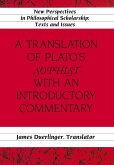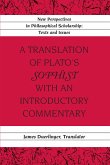Ancient Greek philosophers generally accept the claim that d mi ni is within our power to achieve, regardless of circumstance. Conversely, external goods - physical health, education, social standing - are frequently present or absent due to circumstances beyond our control. Can eudaimonism explain how more than a privileged elite can attain d mi ni when so few enjoy the requisite external goods?
A satisfactory account of the relation between external goods and well-being must accommodate both the insight that there is an essential connection between prosperity and the flourishing life and that there is a real sense in which d mi ni is a self-sufficient concept. The «applied intellectualist» interpretation of eudaimonism defended here accommodates important insights of several ancient Greek traditions: Aristotle's account of human nature, specifically the role of external goods as necessary preconditions for leading a human life; Socratic and Stoic analysis that external goods are necessary constituents of moral action; and Plato's commitment to a criterion for judging the compatibility of external prosperity with a life of d mi ni .
This text provides a comprehensive linguistic and ethical analysis of key terms and arguments across several centuries of ancient Greek ethical thought on this fascinating topic, making it an excellent foundation for an upper-division undergraduate seminar in ancient Greek ethics, virtue ethics, or applied ethics.
A satisfactory account of the relation between external goods and well-being must accommodate both the insight that there is an essential connection between prosperity and the flourishing life and that there is a real sense in which d mi ni is a self-sufficient concept. The «applied intellectualist» interpretation of eudaimonism defended here accommodates important insights of several ancient Greek traditions: Aristotle's account of human nature, specifically the role of external goods as necessary preconditions for leading a human life; Socratic and Stoic analysis that external goods are necessary constituents of moral action; and Plato's commitment to a criterion for judging the compatibility of external prosperity with a life of d mi ni .
This text provides a comprehensive linguistic and ethical analysis of key terms and arguments across several centuries of ancient Greek ethical thought on this fascinating topic, making it an excellent foundation for an upper-division undergraduate seminar in ancient Greek ethics, virtue ethics, or applied ethics.








